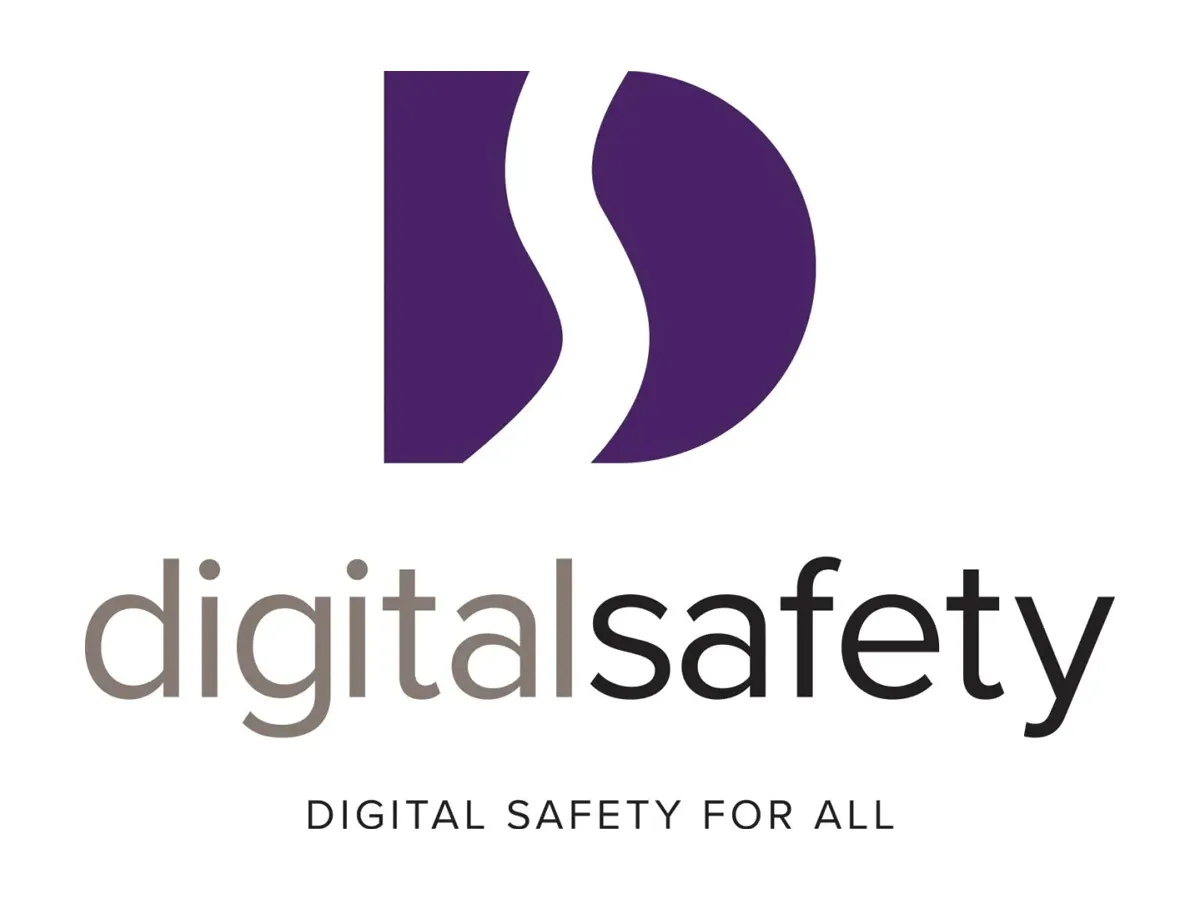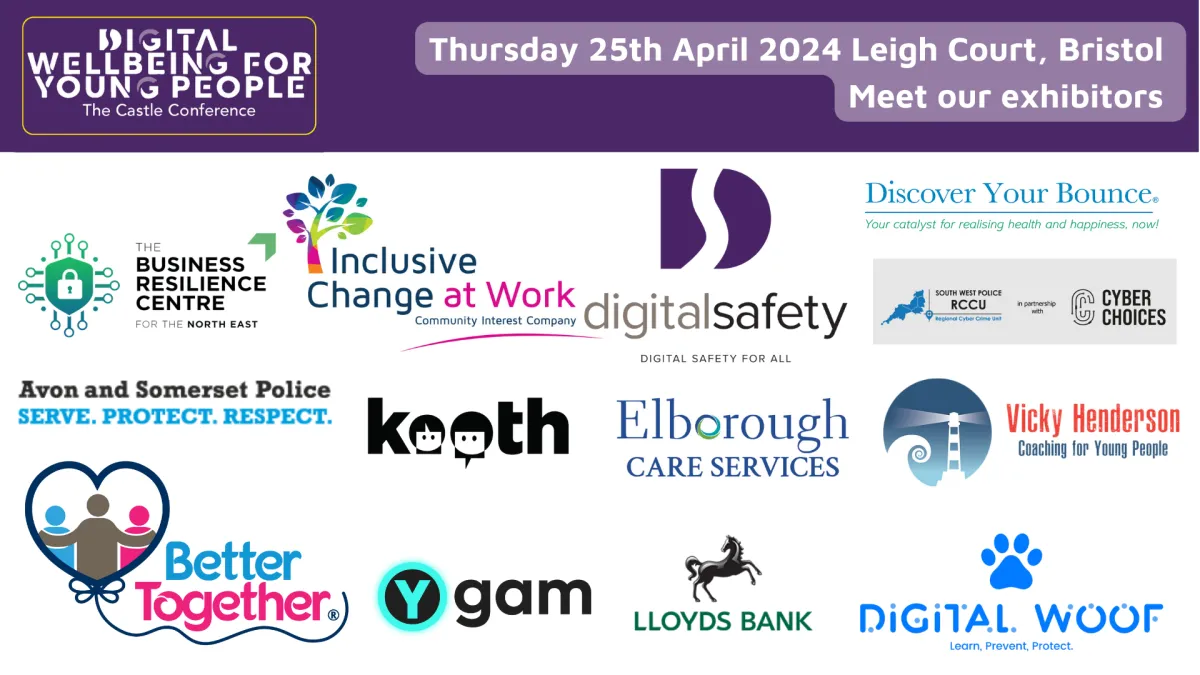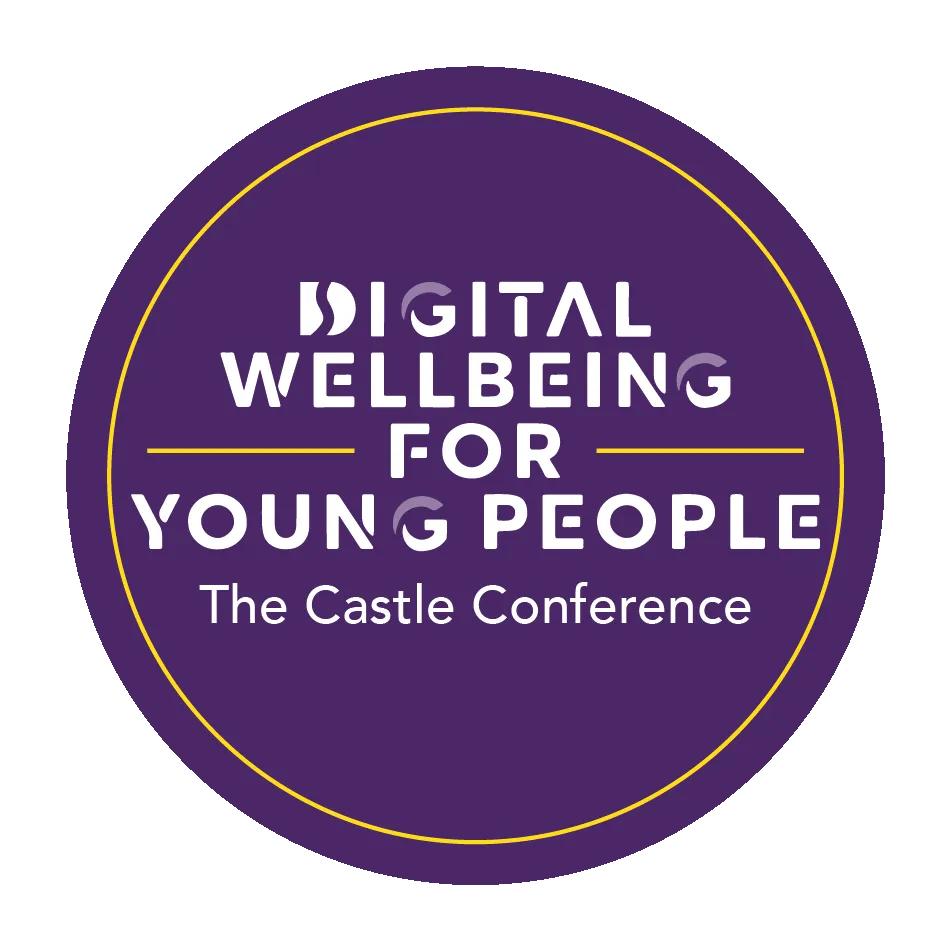Thank you for helping to
Keep the conversation going
Here are some ways we can help you.
We hope you enjoyed The Castle Conference: Digital Wellbeing for Young People.
We know you want to keep the conversation going so we have created a page to help you do that.
The page will be updated with slides and videos when they are available.
Watch the Castle Conference Catch Up
We hope that The Castle Conference inspired you, got you thinking and talking about the topic of Digital Wellbeing. We really hope you have been talking about the conference to your friends, family and colleagues.
We certainly are and we arranged it!
The Castle Conference Catch-Up was a chance to keep talking, a chance to share your thoughts, a chance to find out what questions we have been asked since the day and a chance to ask us new questions.
Andy & Lucy
Recap from the event
We have combined the slides into a video for you to rewatch
This is only the slides - no audio. Videos are below.
Speaker Videos
Lucy Smith: Digital Safeguarding and Neurodiversity
Professor Peter Kawalek: A crisis but not of their making
Luisa Fassi: Social media and adolescence
David Brown: If U Care Share
Resources
Links and downloads for you

Loneliness & Technology: A Complex Relationship
Loneliness and Technology: A Complex Relationship
Loneliness is a growing issue, particularly among young people. While it can stem from negative social experiences or self-imposed isolation, research has linked loneliness to risky behaviours such as increased smoking, drug use, and alcohol consumption. The rise of technology and social media has further complicated this issue—while it can contribute to social isolation, it also offers solutions for staying connected. In this article, we explore the key facts about loneliness, its impact on young people, and how technology can both exacerbate and alleviate feelings of isolation.
How Loneliness Affects Young People

Loneliness is not just an emotional experience; it has serious psychological and physical consequences. Studies show that prolonged loneliness can lead to:
Increased stress and anxiety
Depression and other mental health challenges
Higher risk of engaging in risky behaviours such as smoking, drug use, and alcohol abuse
Negative effects on academic performance and career development
Young people are particularly vulnerable to these effects as they navigate crucial developmental stages. Social connections play a vital role in shaping their identity, self-esteem, and future opportunities.
The Impact of COVID-19 on Loneliness
The COVID-19 pandemic significantly increased feelings of loneliness, particularly among younger individuals. Studies found that:
50.8% of people aged 16-24 reported feeling lonely, compared to 30.9% of the general population (Stickley et al., 2014).
The UK Office for National Statistics found that young people aged 16-24 were the loneliest of all age groups during the pandemic.
Social distancing measures, lockdowns, and the shift to online learning limited face-to-face interactions, intensifying feelings of isolation and disconnection.
Technology as a Solution for Social Isolation
For many young people, technology has served as a lifeline during times of social isolation. Digital tools have allowed individuals to stay connected, maintain friendships, and access support networks despite physical barriers. Key benefits include:
Building and maintaining friendships through social media and gaming platforms.
Continued social and educational participation, especially for those with chronic illnesses (Yeo & Sawyer, 2005).
Online mental health support through apps, forums, and virtual therapy sessions.
ICT-Based Interventions: Breaking Barriers
Strategic interventions using Information and Communication Technology (ICT) have the potential to combat loneliness effectively. Research has shown that:
ICT-based mental health solutions can overcome geographic and socioeconomic barriers, making support accessible to more people.
Digital tools support youth development, including identity formation and transitions in school and career (Hurmat Ali Shah & Mowafa Househ, 2024).
Personal Experience: Technology as a Social Connector
Technology isn’t just a risk factor—it can also be part of the solution to loneliness and social isolation. During the COVID-19 lockdown, for example, many young people turned to online platforms to maintain friendships and cope with social distancing.
For me, the game Among Us became a crucial tool for staying connected. My friends and I organized large game sessions where we engaged in social deduction, deception, and teamwork, creating an exciting and engaging way to interact. The game’s social nature helped us sustain friendships and share moments of joy, even when we couldn’t meet in person.
This experience highlighted how, when used thoughtfully, technology can foster meaningful social connections and provide emotional support during challenging times. While it’s important to be aware of the risks associated with digital platforms, it’s equally essential to recognize their potential as a force for good in combatting loneliness.
Final Thoughts
Loneliness is a significant challenge, especially for young people, but technology can play a dual role—both as a contributor to social isolation and as a tool for connection. By leveraging digital platforms responsibly, individuals can reduce feelings of loneliness, maintain meaningful relationships, and access crucial support systems. Whether through social media, gaming, or virtual communities, technology has the potential to bridge the gap between isolation and connection when used wisely.

Get Your FREE eBook
A Practical guide to Simplify your Digital Life

Digital Safety CIC - Online Resources
Exhibitor Information
We think you will agree that our exhibitors contributed so much to the event.
We know that we can tackle the problems we face alone - which is why we love working with others.
Thank you - you made the day INCREDIBLE!

Inclusive Change At Work CiC
Bradbury House
Wheatfield Road
Bradley Stoke
Bristol
BS32 9DB
Companies House: 13271923
ICO registration: ZZB293922
UK register of Learning providers
UKRLP: 10090653
Privacy Policy | Terms and Conditions
Copyright © 2025 Inclusive Change At Work CiC | All Rights Reserved



